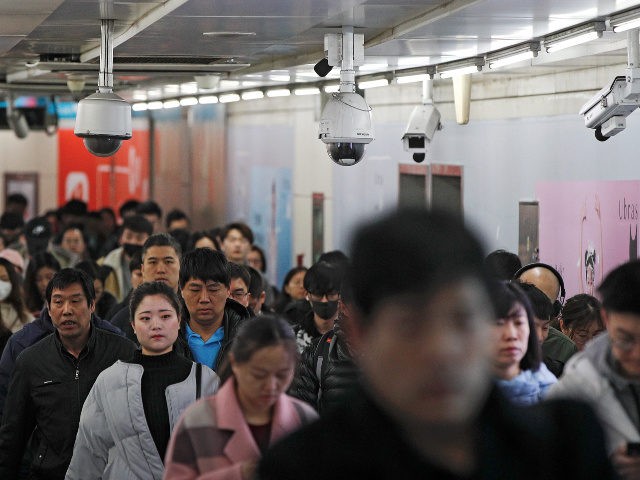New ‘Social Credit System’ is a Dystopian Nightmare
By Steven W. Moshe
May 18, 2019
New York Post
Imagine calling a friend. Only instead of hearing a ring tone you hear a police siren, and then a voice intoning, “Be careful in your dealings with this person.” Would that put a damper on your relationship? It’s supposed to. Welcome to life in China’s “Social Credit System,” where a low score can ruin your life in more ways than one.
Say you arrive at the Beijing airport, intending to catch a flight to Canton 1,200 miles south. The clerk at the ticket counter turns you away because — you guessed it — your social credit score is too low. Not only are you publicly humiliated in the ticket line, you are then forced to travel by slow train. What should have been a three-hour flight becomes a 30-hour, stop-and-go nightmare.
All because the government has declared you untrustworthy. Perhaps you defaulted on a loan, made the mistake of criticizing some government policy online or just spent too much time playing video games on the internet. All of these actions, and many more, can cause your score to plummet, forcing citizens onto the most dreaded rung on China’s deadbeat caste system, the laolai.
And the punishments are shocking. The government algorithm will go as far as to install an “embarrassing” ring tone on the phones of laolai, shaming them every time they get a call in public. But an embarrassing ring tone, flight bans and slow trains are just the beginning of the dystopian nightmare that is now daily life in China for tens of millions of people.
A low social credit score will exclude you from well-paid jobs, make it impossible for you to get a house or a car loan or even book a hotel room. The government will slow down your internet connection, ban your children from attending private schools and even post your profile on a public blacklist for all to see.
According to Australia’s ABC News, the government has produced a “Deadbeat Map” via an app on WeChat, which shows a radar-style graphic identifying every laolai in the vicinity of the user. “Tapping on a person marked on the map reveals their personal information, including their full name, court-case number and the reason they have been labeled untrustworthy. Identity-card numbers and home addresses are also partially shown,” ABC reported.
There are reports that those whose social credit score falls too low are preemptively arrested and sent to re-education camps. Not because they have actually committed a crime, but because they are likely to. Elements of the system are in place throughout China, as the government refines its algorithm, and the final rollout is scheduled to be in place nationwide by 2020.
The government claims that its purpose is to enhance trust and social stability by creating a “culture of sincerity” that will “restore social trust.” What it will actually create, of course, is a culture of fear and a nation of informants. This is because one of the ways that people can improve their own social credit score is to report on the supposed misdeeds of others.
Individuals can earn points, for example, for reporting those who violate the new restrictions on religious practice, such as Christians who illegally meet to pray in private homes, or the Muslim Uyghurs and Kazakhs in China’s far west whom they spot praying in public, fasting during Ramadan or just growing a beard.
Of course, as the state progresses ever closer toward its goal of monitoring all of the activities of its citizens 24 hours a day, seven days a week, society itself becomes a virtual prison. Western criticism of the new system has been intense, with Human Rights Watch describing it as “chilling.”
In response, Chinese Communist Party publications scoff that Westerners are simply too unsophisticated to understand the wonders of the new system. In the words of China’s
Global Times, “The hypothetical theories of the West are based on their ignorance.” The massive social credit system, it goes on to say, is simply “beyond the understanding of Western countries.”
But I think we understand what is going on all too well. It is China’s ancient totalitarian impulse — the absolute rule of the god-emperor over his subjects — brought into the modern age. It is George Orwell’s prophetic “1984” come alive.
China’s already formidable police state has been upgraded using big data, machine learning, face recognition technology and artificial intelligence into a fearsome cyborg of state control. The Chinese Communist Party has given birth to the world’s first high-tech digital dictatorship.
Not content to incarcerate its own population in a virtual prison, China is busily hawking its creation to like-minded socialist dictatorships. Maduro’s Venezuela was China’s first customer.
Steven W. Mosher is the president of the Population Research Institute and the author of “Bully of Asia: Why China’s Dream is the New Threat to World Order,” out now.

